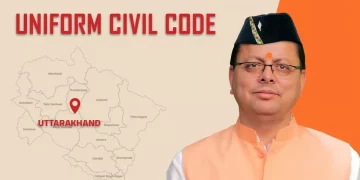On Friday, the Supreme Court declined to issue an interim order on a petition from the NGO Association for Democratic Reforms (ADR), which sought directions for the Election Commission of India (ECI) to disclose the final authenticated voter turnout data, including the number of votes polled, at all polling stations within 48 hours of polling during the 2024 Lok Sabha Elections.
A Vacation Bench comprising Justices Dipankar Datta and Satish Chandra Sharma noted that the interim request was identical to a prayer in a main petition filed in 2019 that is still pending before the Court. They highlighted previous Supreme Court decisions indicating such requests are generally not permissible except in very exceptional cases.
The Court questioned the timing of ADR’s application, asking why it wasn’t filed earlier, to which Senior Advocate Dushyant Dave responded that it could only be filed after disclosures by the ECI. Nevertheless, the Court refused interim relief, emphasizing the need for a “hands off” approach during ongoing elections.
The Court ordered that the matter be listed after the Lok Sabha polls, stating that they were not inclined to grant interim relief since the 2019 petition’s prayer was similar to the 2024 application. The Court clarified that no opinion on the merits was being expressed apart from this prima facie view.
The ADR’s plea argued for the ECI to upload scanned, legible copies of Form 17C Part-I (Account of Votes Recorded) on its website after each phase of polling and to disclose Part-II of Form 17C, which contains candidate-wise results. ADR alleged ECI’s delay and discrepancies in voter turnout announcements had raised concerns among voters and political parties.
The ECI countered that there is no legal obligation to publish such detailed voter turnout data and that doing so could cause confusion, particularly with the inclusion of postal ballot counts. They argued that ADR’s petition was based on suspicion and aimed at discrediting the electoral process.
The Supreme Court had earlier asked the ECI why it couldn’t publish voter turnout details within two days of polling. The ECI responded by suggesting that such petitions erode the integrity of the electoral process and could contribute to declining voter turnout.
The Court reiterated the need to respect ongoing elections and deferred the interim application, emphasizing the importance of maintaining the integrity of the electoral process during active polling periods.













